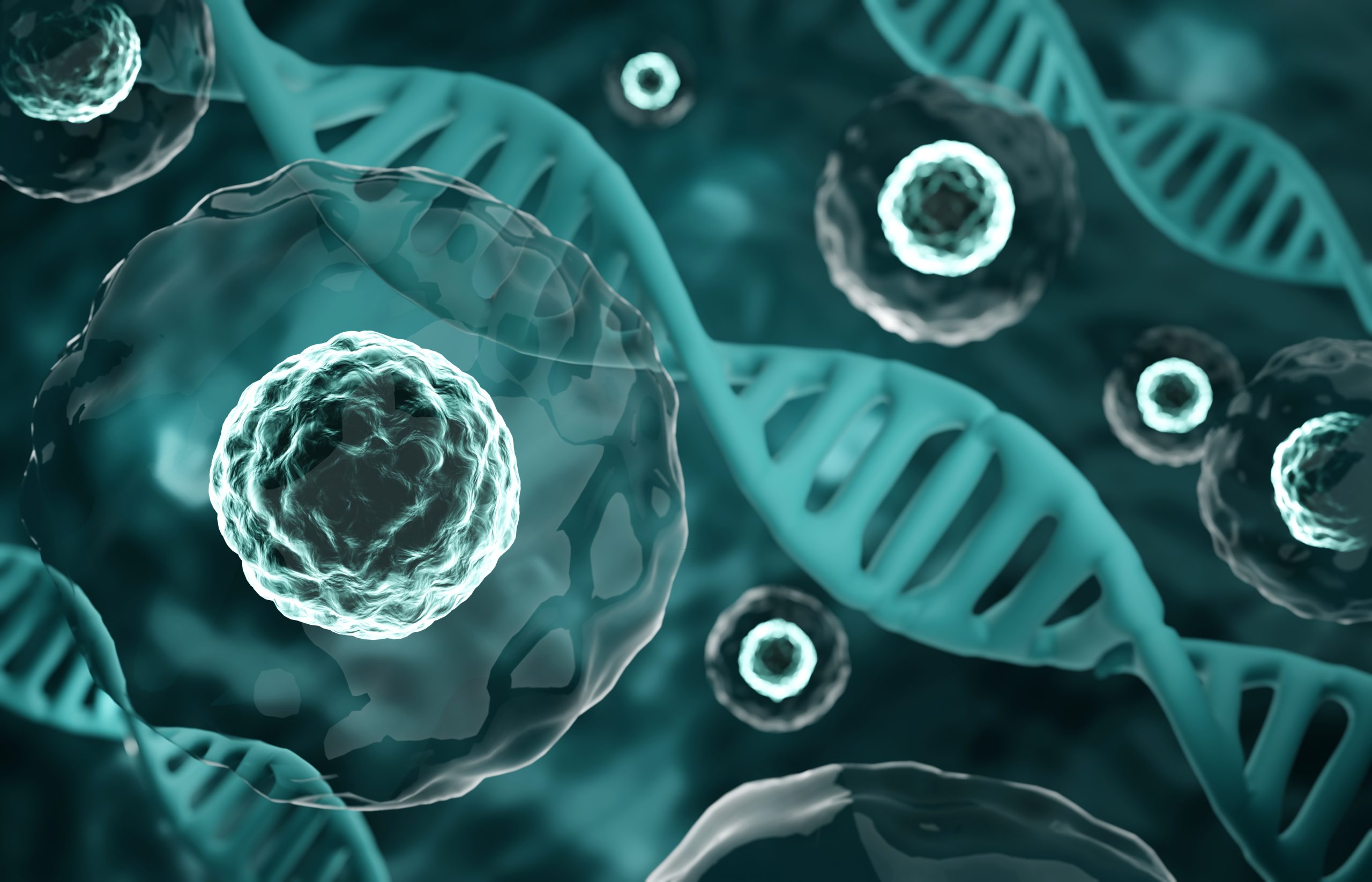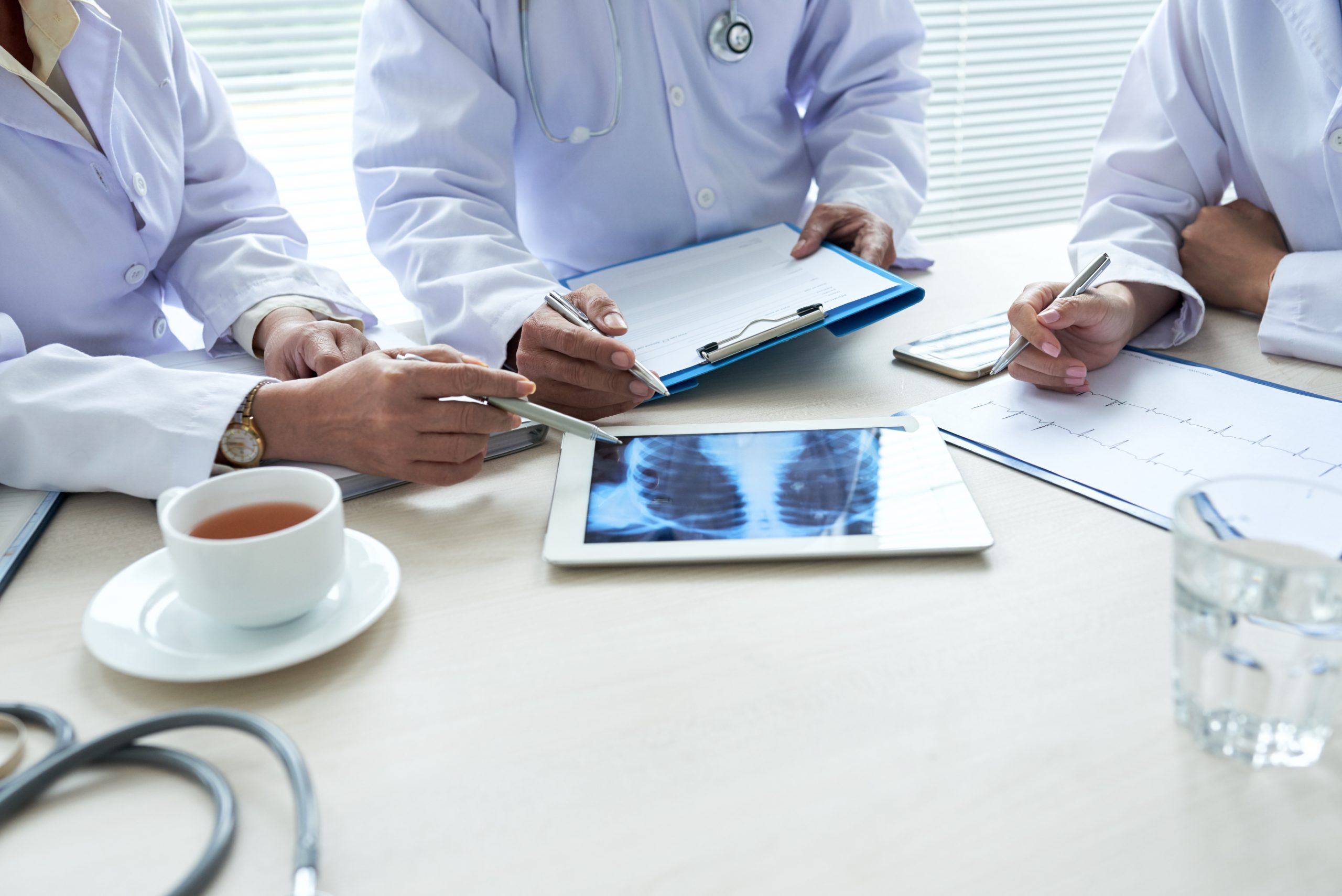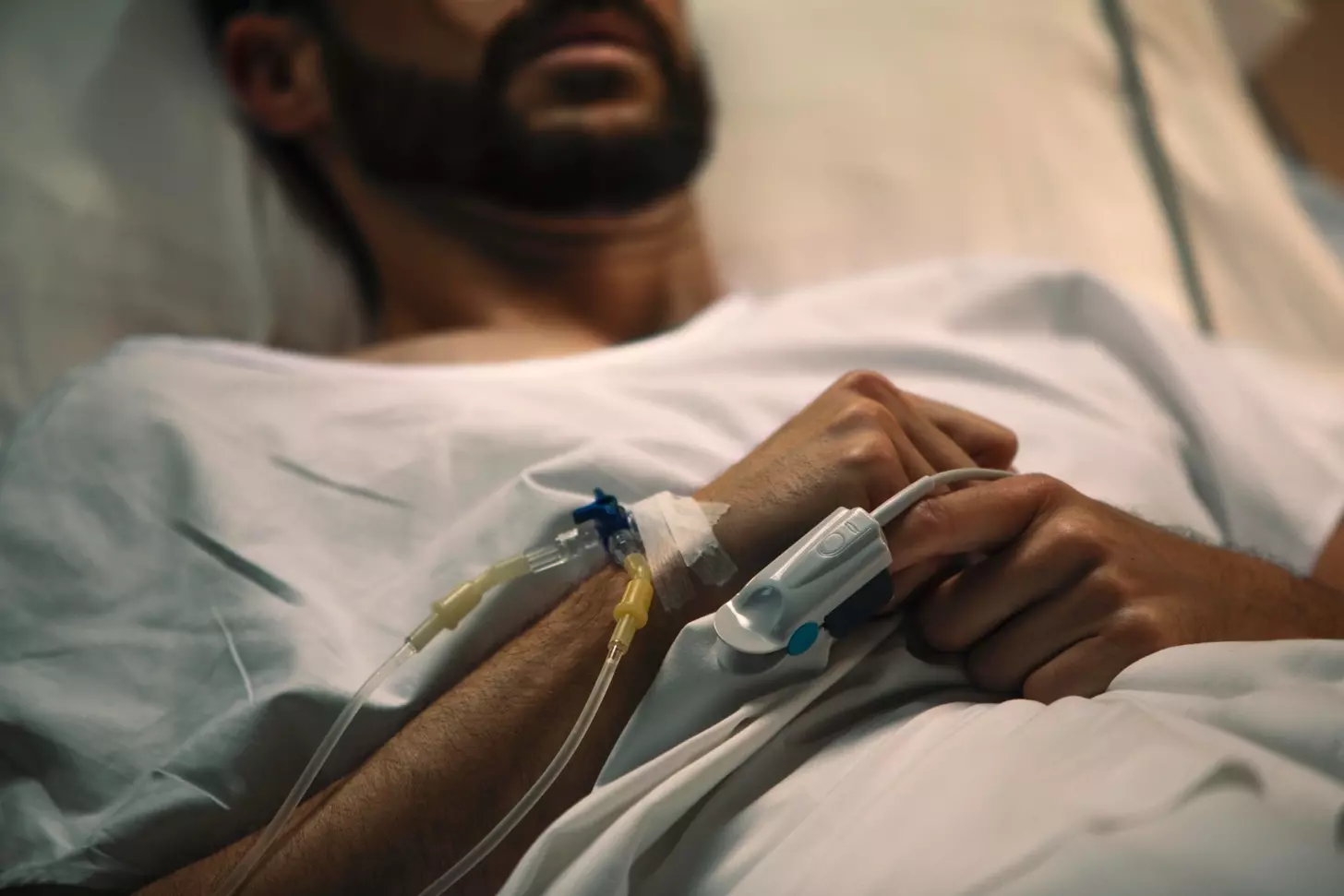Last Updated on November 26, 2025 by Bilal Hasdemir
Cancer treatment is tough, as seen in Delani’s story, and for those receiving treatment it’s vital to know what drinks help during chemo, like water, herbal teas, and smoothies.
A good diet during chemotherapy helps manage side effects and aids in recovery. The right drinks are important for staying hydrated and nourished.
Knowing the best drinks to drink can greatly improve a patient’s comfort and treatment success.
Key Takeaways
- Staying hydrated is key for cancer patients getting chemotherapy.
- A balanced diet helps the body recover during treatment.
- Some drinks can ease chemotherapy side effects.
- Nutrition is vital for managing treatment results.
- Good hydration and nutrition can make patients feel better.
Understanding Chemotherapy’s Effects on Hydration and Appetite

Chemotherapy can change how much water and food a person needs. Muireann McColgan’s story shows how important staying hydrated is. It helps patients do better during treatment.
Common Side Effects That Impact Fluid Intake
Patients on chemotherapy face many side effects. These include nausea, vomiting, and diarrhea. These can cause dehydration if not handled right.
Some also lose their appetite or taste. This makes it hard to drink enough water.
Why Proper Hydration Is Critical During Treatment
Drinking enough water is key during chemotherapy. It helps the body handle the treatment better. It also lowers the chance of dehydration and its dangers.
Staying hydrated can also ease side effects like fatigue and constipation. This improves life quality for patients.
Drinking water boosts the immune system, which is important during chemo. Foods to boost the immune system during chemo and staying hydrated help the body recover. Knowing what to eat during chemo and how to stay hydrated is key to handling treatment well.
The Importance of Staying Hydrated During Cancer Treatment
Staying hydrated is key during cancer treatment. Chemotherapy can cause the body to lose fluids. This is due to side effects like vomiting, diarrhea, and more urine.
How Dehydration Affects Treatment Efficacy
Dehydration can make it harder for the body to recover from chemotherapy. When we don’t drink enough, our cells can’t work right. This makes the treatment less effective.
Severe dehydration can lead to serious problems. It can harm the kidneys and cause imbalances in electrolytes. These issues can be very dangerous. Dehydration also makes us feel tired, dizzy, and weak. It makes it hard to keep up with treatment.
Recommended Daily Fluid Intake During Chemotherapy
How much fluid a chemotherapy patient needs varies. Most are told to drink 8-10 cups (64-80 ounces) a day. But, some might need more if they’re vomiting a lot, have diarrhea, or a fever.
Fluids can come from water, clear broths, and drinks with electrolytes. Foods like fruits and veggies also help. It’s important to talk to your about the right amount of fluids for you.
Water: The Foundation of Hydration During Chemo
For those on chemotherapy, water is key to staying hydrated. It helps lessen side effects. Drinking enough water is vital for managing treatment side effects and keeping health up.
Best Ways to Make Water More Appealing
Chemotherapy can change how things taste, making plain water less exciting. To make water more fun, try adding lemon, lime, or orange slices. Infusing water with fruits or herbs not only tastes better but also adds health benefits.
Chilling water or adding ice cubes can also help. Some like using straws or favorite cups to make drinking more fun.
Infused Water Recipes for Chemotherapy Patients
Infused water is a tasty way to stay hydrated. Here are some favorites:
- Cucumber and mint infusion: Slice a cucumber and add a few sprigs of fresh mint to a pitcher of water.
- Strawberry and basil infusion: Add sliced strawberries and a few leaves of basil to water for a sweet and savory flavor.
- Lemon and ginger infusion: Slice a lemon and add thin slices of ginger to water for a refreshing and invigorating drink.
These recipes can be adjusted to fit your taste. They make drinking water more enjoyable during chemotherapy.
“Staying hydrated is key during chemotherapy. Water is the best drink for this, and making it tastier can help patients drink more.”
Nourishing Teas That Support Chemotherapy Recovery
Certain teas can offer comfort to those going through chemotherapy. They provide hydration and help with side effects like nausea and fatigue.
Ginger Tea for Nausea Relief
Ginger tea is great for easing nausea, a common issue with chemotherapy. Ginger’s active parts, like gingerol, have anti-inflammatory effects that soothe the stomach.
Preparing Ginger Tea: Just slice fresh ginger, boil it, and strain. You can sweeten it with honey or lemon.
Green Tea and Its Possible Benefits
Green tea is full of antioxidants called catechins. They might protect the body from chemotherapy damage. Epidemiological studies suggest green tea has health benefits, but more research is needed.
Herbal Teas That Soothe Treatment Side Effects
Other herbal teas can also help with chemotherapy side effects. Peppermint tea eases digestion, and chamomile tea helps with relaxation and anxiety.
- Peppermint tea for digestive comfort
- Chamomile tea for relaxation
- Lavender tea for stress relief
Adding these teas to a patient’s diet can boost their well-being during chemotherapy. Always talk to a healthcare provider before changing your diet or hydration plan.
Nutritious Smoothies and Shakes for Chemo Patients
Nutritious smoothies and shakes are key for chemo patients. They make it easy to get important nutrients. These are hard to get from solid foods during treatment.
High-Protein Smoothie Recipes
High-protein smoothies are great for chemo patients. They help keep muscle mass and support health. Ingredients like Greek yogurt, protein powder, nuts, and seeds are good choices.
A simple high-protein smoothie recipe includes:
- 1 cup Greek yogurt
- 1 scoop protein powder
- 1/2 cup frozen berries
- 1 tablespoon almond butter
- 1/2 cup unsweetened almond milk
Blend these ingredients until smooth. Enjoy as a nutritious snack or meal replacement.
Fruit and Vegetable Blends for Nutrient Support
Fruit and vegetable blends are full of vitamins, minerals, and antioxidants. They support the body during chemotherapy. Leafy greens, fruits like bananas and berries, and vegetables like carrots are good choices.
| Fruit/Vegetable | Nutritional Benefit |
| Spinach | Rich in iron and antioxidants |
| Banana | Good source of potassium |
| Carrots | High in vitamin A |
How to Make Smoothies More Palatable During Treatment
Chemotherapy can change how foods taste. To make smoothies more appealing, add ingredients that boost flavor. Avoid sugars or artificial flavorings.
Some tips include:
- Using fresh mint leaves for a refreshing taste
- Adding a squeeze of fresh citrus juice
- Incorporating ginger for its anti-inflammatory properties and flavor
By using these tips and recipes, chemo patients can enjoy nutritious smoothies and shakes. These support their health and well-being during treatment.
Beneficial Juices During Chemotherapy
Adding nutrient-rich juices to your diet during chemotherapy can ease some treatment side effects. These juices offer essential vitamins, minerals, and antioxidants. They help keep your strength up and support your health.
Best Juice for Chemo Patients: Evidence-Based Options
Some juices are great for people going through chemotherapy. They are full of nutrients and can help with side effects. For example, orange and grapefruit juices boost your immune system with vitamin C. Berries and leafy greens in juices can also fight oxidative stress.
Recommended Juices:
- Orange juice: Rich in vitamin C, which can help support immune function.
- Beetroot juice: Known for its antioxidant properties and the ability to reduce inflammation.
- Carrot juice: High in vitamin A, which is important for healthy skin and mucous membranes.
- Green juice: Made from leafy greens like kale and spinach, it’s packed with antioxidants and essential nutrients.
Juicing Tips to Maximize Nutrients and Minimize Side Effects
To get the most from juicing during chemotherapy, follow some key tips. Choose fresh, organic produce to avoid pesticides and get more nutrients. Drink juices right after making them to keep their nutritional value high.
| Juicing Tip | Benefit |
| Use a variety of fruits and vegetables | Ensures a broad spectrum of nutrients |
| Drink immediately after juicing | Preserves nutritional value |
| Consider adding ginger or turmeric | Can help reduce nausea and inflammation |
By adding beneficial juices to your diet and following these tips, you can support your body during chemotherapy. You might also feel some relief from treatment side effects.
Electrolyte-Rich Drinks to Combat Dehydration
Electrolyte-rich drinks are key for chemotherapy patients to fight dehydration. They help with side effects like nausea and diarrhea. These drinks replace lost electrolytes like sodium and potassium, keeping the body hydrated.
Natural Electrolyte Sources
There are many natural sources of electrolytes. These can be added to a patient’s diet easily. Some include:
- Coconut water, which is rich in potassium
- Fresh fruit juices, such as orange or grapefruit, which contain potassium and vitamin C
- Vegetable juices, like carrot or beet, which are rich in various electrolytes
- Herbal teas, such as ginger or peppermint, which can help soothe the stomach and provide essential electrolytes
Infused water is also a good choice. Adding fruits, cucumbers, or mint to water makes it refreshing and full of electrolytes. For example, lemon and ginger in water can help with digestion and electrolyte levels.
Commercial Options for Severe Dehydration
For severe dehydration, commercial drinks are needed. These are made to quickly replace lost electrolytes and fluids. Some popular ones are:
- Sports drinks like Gatorade or Powerade, which contain sodium and potassium
- Oral rehydration solutions like Pedialyte, designed for both children and adults
- Electrolyte-rich beverages like Nuun or ZYM, which come in various flavors and are designed for hydration
Chemotherapy patients should talk to their before trying new drinks. This is true for severe dehydration or dietary restrictions. The can suggest the best drinks based on the patient’s health and needs.
Adding electrolyte-rich drinks to their diet helps patients manage dehydration. It also supports their health during treatment.
Diet During Chemotherapy: Integrating Beneficial Drinks
Adding beneficial drinks to your diet during chemotherapy can greatly improve your health and treatment results. A good diet for oncology patients includes not just food but also drinks that help with treatment and recovery.
Creating a Balanced Fluid Intake Plan
Creating a balanced fluid intake plan means choosing drinks that hydrate, provide electrolytes, and nutrients. Water is key, but herbal teas, nutrient-rich smoothies, and electrolyte drinks are also important.
For those going through chemotherapy, it’s important to drink a variety of fluids. This includes infused water, nourishing teas, and smoothies full of proteins and nutrients.
Coordinating Drinks with Medication Schedules
It’s important to match drink times with medication schedules to avoid any negative effects. Some medicines need to be taken with an empty stomach or with a specific drink.
Patients should talk to their healthcare provider about how to time their drinks with their meds. This might mean avoiding certain drinks that could affect how well the medicine works.
By planning and coordinating their drinks, chemotherapy patients can manage side effects better and improve their life quality.
Drinks to Avoid During Chemotherapy Treatment
When you’re going through chemotherapy, it’s important to watch what you drink. Some drinks can make side effects worse or mess with your medicine. Knowing what to avoid is key.
Alcoholic Beverages and Their Impact
Alcohol is something to limit or avoid during chemotherapy. It can interact with chemotherapy drugs, causing more nausea, vomiting, and tiredness. Also, alcohol can dry out your body, making treatment harder.
Some chemotherapy drugs can harm your liver, and drinking alcohol can make this worse. Always talk to your about drinking alcohol while you’re getting treatment.
Caffeinated Drinks: Risks and Considerations
Caffeinated drinks like coffee and tea are popular. But, during chemotherapy, you should be careful with caffeine. Too much caffeine can exacerbate dehydration and mess with your sleep, which is important when you’re getting chemotherapy.
Most people can safely have a little caffeine, but be careful if you’re sensitive to it during treatment. Some chemotherapy drugs can make you more sensitive to caffeine, so what’s safe for others might not be for you.
Sugary Beverages and Their Effect on Treatment
Sugary drinks like soda and sports drinks are not good during chemotherapy. They can cause unintended weight gain and don’t give you the nutrients you need.
Drinking a lot of sugar can also make you eat more calories without getting the nutrients you need. This can affect how well your treatment works. It’s better to choose drinks that are full of nutrients.
| Drink Type | Potential Risks | Recommended Alternatives |
| Alcoholic Beverages | Interactions with chemotherapy drugs, dehydration | Herbal teas, infused water |
| Caffeinated Drinks | Dehydration, sleep interference | Decaffeinated teas, low-sugar sports drinks |
| Sugary Beverages | Unintended weight gain, lack of nutritional value | Nutrient-rich smoothies, low-fat milk |
Being careful about what you drink during chemotherapy can help your treatment and health. Always talk to your about what to eat and drink.
Managing Specific Symptoms with Targeted Beverages
The right drinks can help with chemotherapy side effects. Choosing the right drinks can make symptoms better. This improves life quality during treatment.
Drinks for Combating Nausea and Vomiting
Nausea and vomiting are common with chemotherapy. Some drinks can help. Ginger tea has anti-inflammatory properties and is soothing. Peppermint tea can calm the stomach too.
- Ginger ale or ginger beer can also provide relief.
- Clear broths, such as chicken or vegetable broth, can be gentle on the stomach.
Hydration Solutions for Diarrhea and Constipation
Chemotherapy can cause diarrhea and constipation. Drinking enough water is key. Electrolyte-rich beverages like coconut water help replace lost salts during diarrhea.
| Symptom | Recommended Beverage |
| Diarrhea | Coconut water, clear broths |
| Constipation | Warm prune juice, herbal teas like senna |
Soothing Options for Mouth Sores and Dry Mouth
Mouth sores and dry mouth are side effects of chemotherapy. Some drinks can help. Cool, non-acidic beverages like almond milk or coconut milk are soothing. Sucking on ice chips can also help with dry mouth.
Adding these drinks to your diet during chemotherapy can help manage symptoms. This can also improve treatment outcomes.
Practical Tips for Maintaining Hydration During Treatment
Staying hydrated is key for those going through chemotherapy. Simple habits can greatly help. Drinking enough water helps your body handle treatment side effects and keeps you healthy.
Creating a Hydration Schedule
Creating a hydration schedule is a smart move. Set reminders to drink water at certain times. This could be when you wake up, eat, or before bed.
- Drink at least 8-10 glasses of fluid per day.
- Eat hydrating foods like watermelon and cucumbers.
- Check your urine; it should be pale yellow or clear.
A study in the Journal of Oncology found that staying hydrated helps. It reduces treatment side effects and improves outcomes for cancer patients.
“Adequate hydration is vital for chemotherapy patients. It lowers dehydration risk and related issues.”
Temperature Considerations for Maximum Comfort
The temperature of your drinks affects your comfort. Some like cold drinks, while others prefer room temperature.
| Drink Temperature | Patient Preference |
| Cold | Refreshing, great for hot weather or mouth sores. |
| Room Temperature | Softer on the stomach and teeth, good for sensitivity. |
Tools and Containers That Make Drinking Easier
The right tools and containers can improve your hydration. Use a water bottle with measurements to track your intake.
Straws help with mouth sores or lifting cups. There are also bottles made for comfort during treatment.
By following these tips, you can keep your hydration levels up. This supports your health during chemotherapy.
When to Consult Your Healthcare Team About Hydration
Staying hydrated is key during cancer treatment. Knowing when to ask for help is just as important. Chemotherapy can cause dehydration because of side effects like nausea, vomiting, and diarrhea. It’s vital to recognize when you need to talk to your healthcare team about staying hydrated.
Warning Signs of Dehydration During Chemotherapy
Dehydration can harm your treatment’s success and your health. Look out for these signs:
- Dark yellow or brown urine
- Fatigue or dizziness
- Dry mouth and cracked lips
- Headaches and muscle cramps
If you notice any of these, talk to your healthcare team right away. Early action can stop severe dehydration and its problems.
Coordinating with Your Oncology Nutritionist
An oncology nutritionist is key in managing your diet and hydration during cancer treatment. They offer personalized advice on fluids and food to help with side effects. Here’s what to do:
- Tell your oncology nutritionist about any changes or side effects.
- Share your current fluid intake and any hydration challenges.
- Get advice on the best fluids and foods for your treatment.
Working with your oncology nutritionist helps you create a hydration and nutrition plan. This plan is tailored to your needs during treatment.
Managing hydration well is a team effort between you and your healthcare team. Being aware of dehydration signs and working with professionals helps cancer patients face chemotherapy’s challenges.
Conclusion
Eating well is key when you’re going through chemotherapy. It helps manage side effects and keeps you healthy. Drinking the right amount of water is very important.
Drinks like water, teas, smoothies, and electrolyte drinks can help with nausea and staying hydrated. These can be part of your daily drink plan.
It’s important to work with your healthcare team, including a nutritionist, to make a diet plan. This plan should fit your needs, treatment schedule, and any dietary restrictions. It helps ensure you get the nutrients you need.
By eating a balanced diet and staying hydrated, you can make your chemotherapy treatment better. It also helps your body recover.
FAQ
What are the best drinks to consume during chemotherapy?
The best drinks during chemotherapy include water, nourishing teas, smoothies, and juices. These drinks are full of electrolytes and nutrients. They help manage side effects, keep you hydrated, and support your health.
How much fluid should I drink during chemotherapy?
You should drink at least 8-10 cups (64-80 ounces) of fluid each day. But, your needs might be different based on your treatment.
Can I drink caffeinated beverages during chemotherapy?
You can have caffeinated drinks in small amounts. But, be careful because they can make you lose more water. Always talk to your healthcare team about what’s best for you.
Are there any specific juices that are beneficial for chemotherapy patients?
Yes, juices like ginger, green, and fruit juices are good for patients. They offer important nutrients, help with nausea, and support your health.
How can I make water more appealing during chemotherapy?
You can make water more interesting by adding fruits, herbs, or cucumber. Try adding a lemon or lime slice. You might also like it more at different temperatures, like cold or room temperature.
What are some high-calorie drinks that can help with weight gain during chemotherapy?
High-calorie smoothies, shakes, and supplements can help you gain weight. Adding healthy fats like nut butters or avocado to your drinks is also a good idea.
Can I drink alcoholic beverages during chemotherapy?
It’s best to avoid alcohol during chemotherapy. It can mix badly with your medications, make side effects worse, and affect how well your treatment works.
How can I manage nausea and vomiting with drinks during chemotherapy?
Ginger tea, ginger ale, and other ginger drinks can help with nausea. Drinks rich in electrolytes can also help replace lost fluids and salts. Always talk to your healthcare team for advice that fits you.
What are the warning signs of dehydration during chemotherapy?
Signs of dehydration include feeling very thirsty, dark urine, dizziness, feeling very tired, and dry mouth. If you notice these, see your healthcare team right away.
How can I coordinate with my oncology nutritionist to manage hydration during chemotherapy?
Work with your oncology nutritionist to create a hydration plan that’s right for you. They’ll consider your needs, treatment, and any side effects. Regular meetings can help you stay hydrated and manage side effects well.






